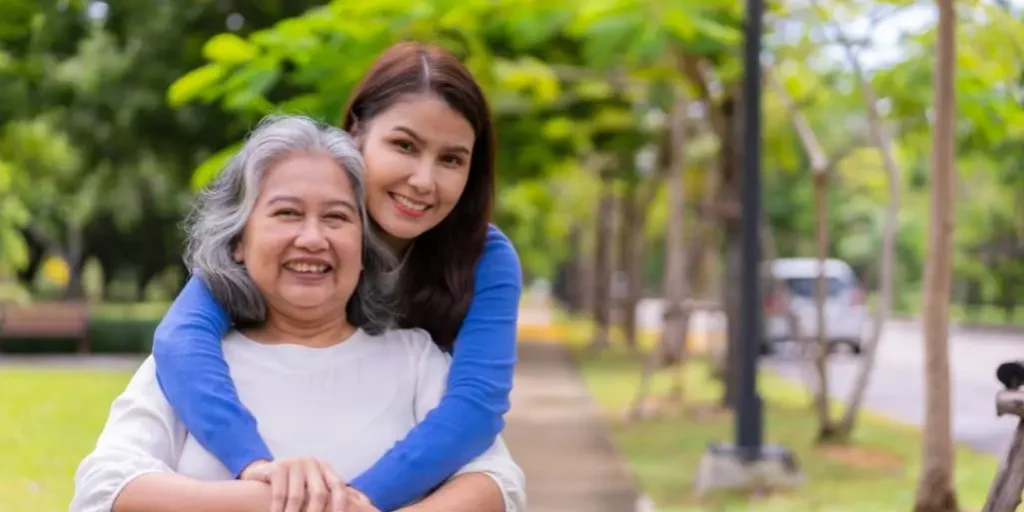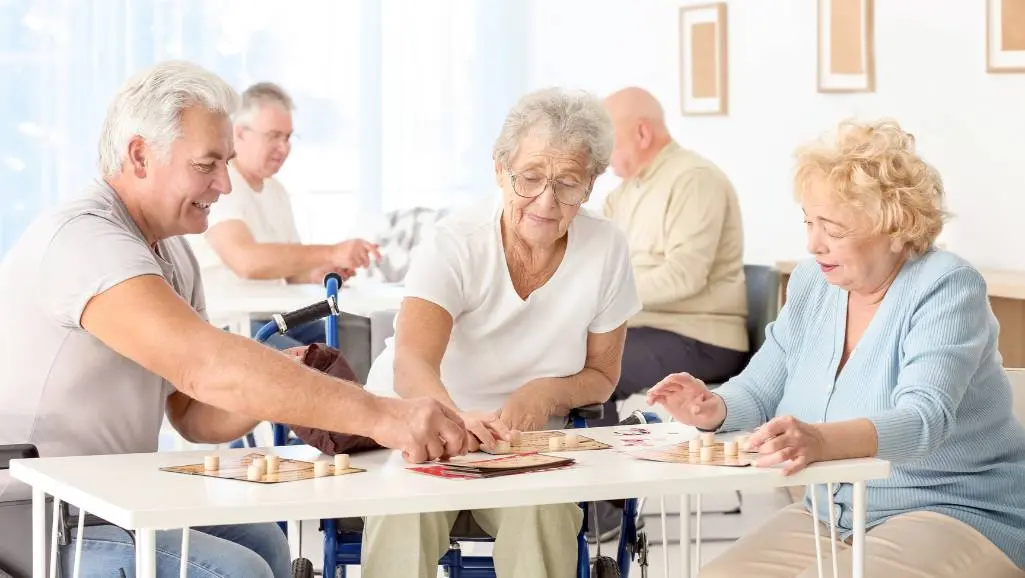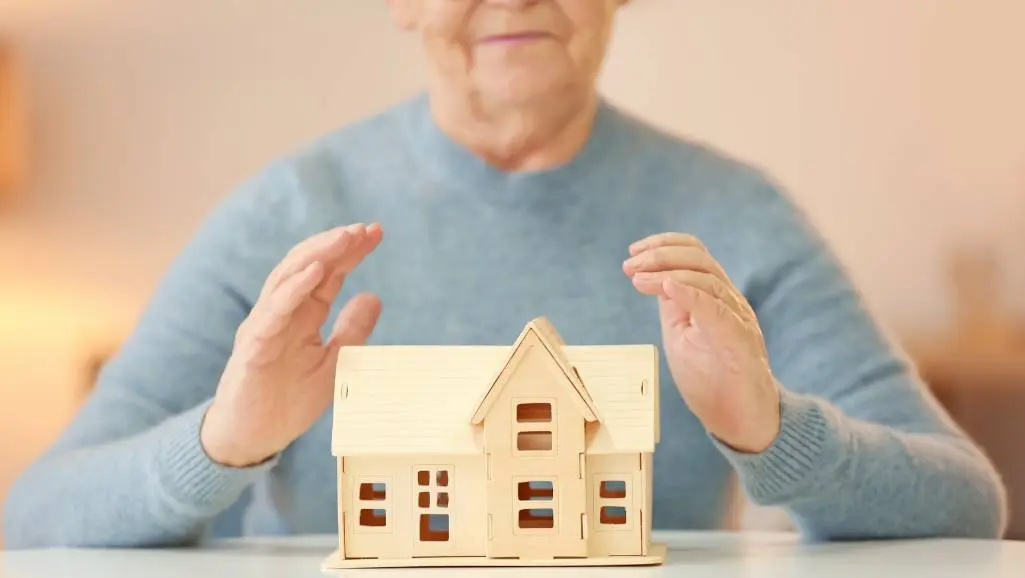Ensuring the comfort and safety of our elderly family members is essential. Senior home care is about promoting a quality of life where senior daily care tips and routines support the well-being of older adults. It’s important to dispel common myths and confront the realities of aging, understanding that each senior has unique needs and preferences that affect their daily living.
Many believe that all seniors eventually end up in a nursing home or require intense care. However, many older adults maintain a high degree of independence with the support of community resources and in-home support services. Emphasizing the potential for a fulfilling life at home, we can better cater to their individual needs, enhancing their daily experiences.
Assessing Senior Care Needs
Routine medical appointments are vital in maintaining the health of seniors. It’s crucial for care providers to regularly assess physical or cognitive functioning to tailor daily routines that support health and mobility. This could include modifications to include daily routine aids like walkers or scheduled medication reminders.
Mental health is as important as physical health. Engaging in activities like a puzzle or art project can provide mental stimulation and joy. Assessing cognitive health helps in creating customized care plans that include favorite pastimes and social interactions, which are essential for cognitive functioning.
Creating a Comfortable Living Environment
When it comes to home modifications, support such as installing grab bars, better lighting, and accessible storage can make a big difference. These changes help prevent falls and make the home more navigable for seniors with mobility issues.
Ensuring that living spaces are free from hazards and installing safety alarms can provide peace of mind to the family members and the seniors themselves. Regularly updating these precautions is needed as the senior’s needs evolve. Investing in daily routine aids like raised toilet seats, hand-held shower heads, and easy-to-use kitchen tools can empower seniors to maintain independence in their daily activities.
Navigating Daily Activities
Maintaining personal hygiene is essential for both health and dignity. Personal hygiene needs assistance includes helping them get dressed or managing a bath. In addition, providing a nourishing breakfast and planning for nutritious meals throughout the day ensures that seniors enjoy not only the taste but also the health benefits of their meals. Weekly meal preparation can be a time to incorporate preferences and even involve the seniors in light activities like packing a picnic lunch.
Assisting with mobility not only involves physical support but also making sure that everyday environments are conducive to movement. Whether it’s a walk in the neighborhood park or just moving around the house, such support is crucial in maintaining an active lifestyle for seniors.
Emotional Support and Companionship
Building meaningful connections is needed for seniors’ routine, helping them cope with loneliness and maintain mental agility. Engaging in activities that stimulate the mind, such as participating in weekly dinner dates, listening to favorite music, or undertaking an art project, can make a significant difference in their emotional well-being.
Social interactions help older adults feel connected and valued, reducing feelings of isolation and depression. Family members and caregivers should encourage regular social activities that fit the senior’s interests and physical capabilities, fostering emotional support through companionship.
Medication Management
Effective medication management is a cornerstone of senior care, ensuring that older adults understand their prescriptions and adhere to their treatment plans. Incorporating daily routine aids such as pill organizers or electronic reminders helps seniors maintain their medication schedules accurately.
Additionally, errands medication reminders transportation can be integrated into their care, where caregivers or family members assist in picking up prescriptions and provide timely reminders for doses during outings or transportation to appointments. This holistic approach not only aids in adherence but also in monitoring for side effects, which is crucial for maintaining a senior’s health. Regular consultations with health care providers are essential to adjust medications as needed and to minimize adverse effects, thereby enhancing the quality of life for seniors.
Financial Planning for Senior Care
Financial planning is a critical aspect of ensuring a sustainable care plan for seniors. Assessing the total cost of care involves understanding daily living expenses, medical needs, and in-home care services. Exploring insurance options like Medicare and Medicaid to cover some of these costs can alleviate financial stress.
Additionally, practical budgeting tips, such as planning for future care needs and potential changes in health status, help seniors and their families manage finances more effectively, ensuring that the resources are available for quality care as needed.
Legal Considerations
Addressing legal considerations early is vital for protecting the rights and wishes of seniors. Establishing a power of attorney allows trusted individuals to make decisions on behalf of the senior if they are no longer able to do so themselves.
Advance directives, including living wills, specify wishes regarding medical treatment and end-of-life care, ensuring those wishes are respected. Estate planning, another critical element, helps in organizing the distribution of assets and can significantly reduce the burden on family members, ensuring that the senior’s legacy is managed according to their desires.
Respite Care Options
Caring for a loved one is a rewarding but demanding role, and caregivers also need breaks to maintain the quality of their care. Respite care offers a valuable solution by providing temporary, professional care that allows primary caregivers time away from their duties.
Planning for caregiver breaks is significant for maintaining the caregiver’s mental and physical health, preventing burnout and ensuring the quality of care remains high. Respite care can range from a few hours a week to extended periods, depending on the family’s needs.
Addressing Chronic Health Conditions
Managing chronic health conditions effectively is key to improving the quality of life for seniors. For those dealing with diabetes, regular blood sugar monitoring and dietary management are needed. Heart disease requires a coordinated approach involving medication, diet, and physical activity to manage symptoms and prevent complications.
Moreover, caring for seniors with Alzheimer’s or dementia involves creating a safe environment and engaging in activities that help maintain cognitive function and memory. Tailored care approaches help stabilize these conditions and slow their progression, which is vital for maintaining long-term health.
Holistic Wellness Approaches
Holistic wellness approaches can significantly enhance the overall health and well-being of seniors. Integrating alternative therapies such as acupuncture, massage, or chiropractic care can provide pain relief and improve physical function. Mindfulness and meditation are valuable tools for mental health, helping seniors reduce stress and increase emotional resilience.
Regular exercise and physical therapy are also critical, improving mobility, strength, and balance to prevent falls and injuries. These holistic strategies contribute to a comprehensive care plan that supports both the physical and mental health of older adults.
Communicating Effectively with Healthcare Providers
Effective communication with healthcare providers is fundamental in securing the best care for seniors. Advocating for the senior’s needs ensures that their preferences and concerns are addressed in every aspect of their care plan.
Building a healthcare team that includes physicians, specialists, and therapists, who are all on the same page regarding the senior’s health, creates a coordinated and efficient approach to managing their overall well-being. This team-based strategy enhances care quality by ensuring all aspects of the senior’s health are considered and addressed comprehensively.
Emergency Preparedness
It’s critical to have robust emergency preparedness in place for senior care. Creating detailed emergency plans tailored to the specific needs of the elderly ensures that in the event of an unexpected situation, responses are swift and effective.
Comprehensive plans should include accessible evacuation routes, clearly marked and easy to reach safety kits, maintaining an updated emergency contact list and regular drills to keep everyone prepared. First aid training for caregivers and family members is equally important, equipping them with the necessary skills to handle potential medical emergencies before professional help arrives.
Mastering Senior Home Care
Providing top-notch senior care is an ongoing process that demands dedication and understanding. Whether it’s a need for physical care assistance, light housekeeping, or just a companion, each aspect of care is pivotal. By embracing the strategies in this guide and maintaining a commitment to enhancing the quality of life for our seniors, caregivers can ensure that the golden years are truly golden. It’s about more than just meeting basic needs; it’s about enriching lives and fostering independence and happiness in every interaction.









